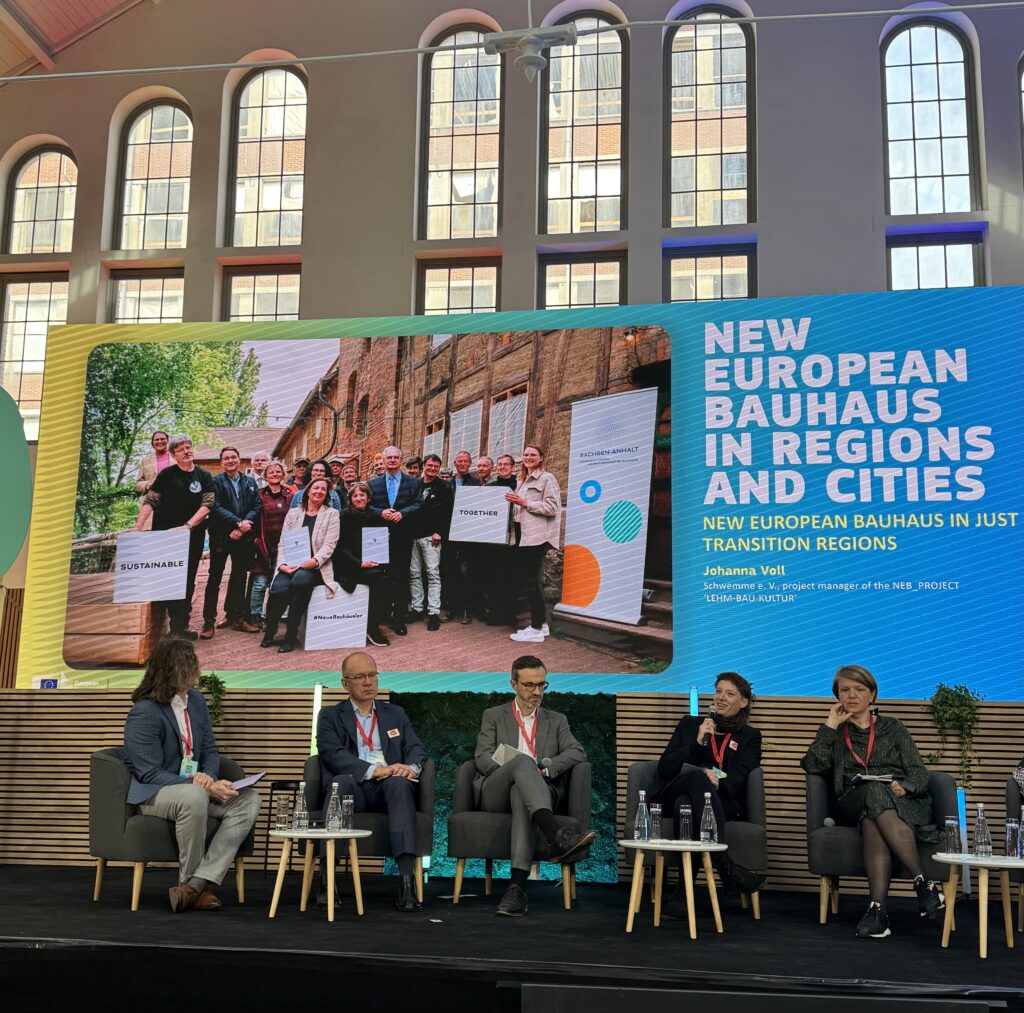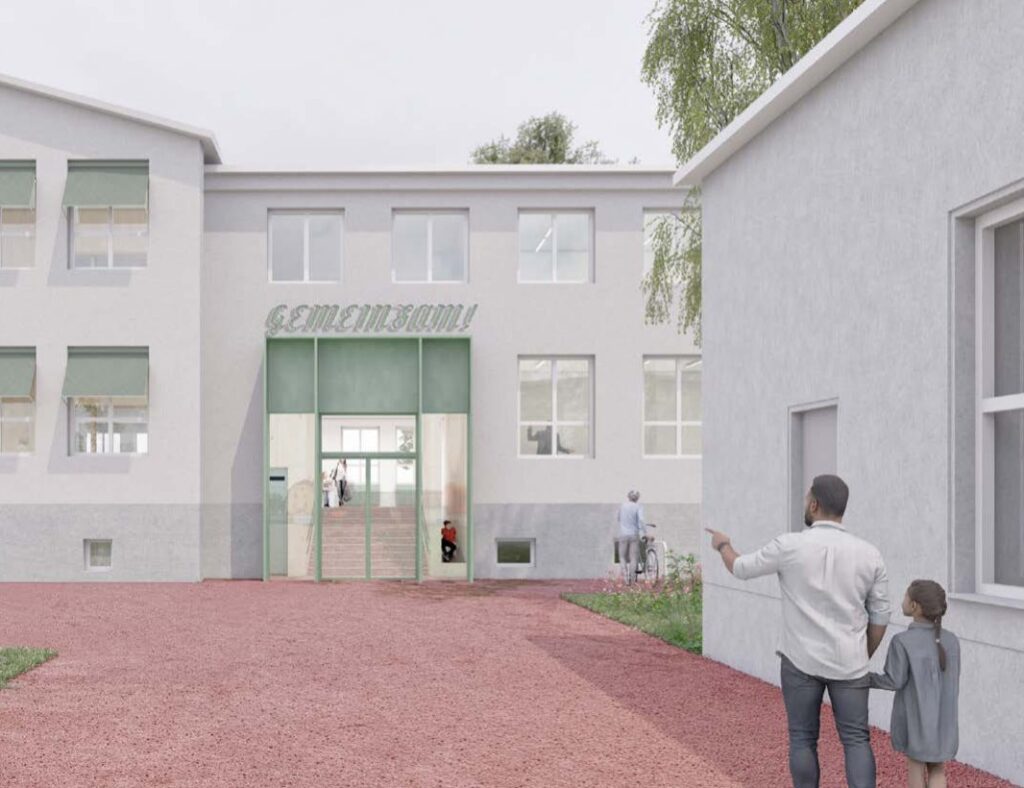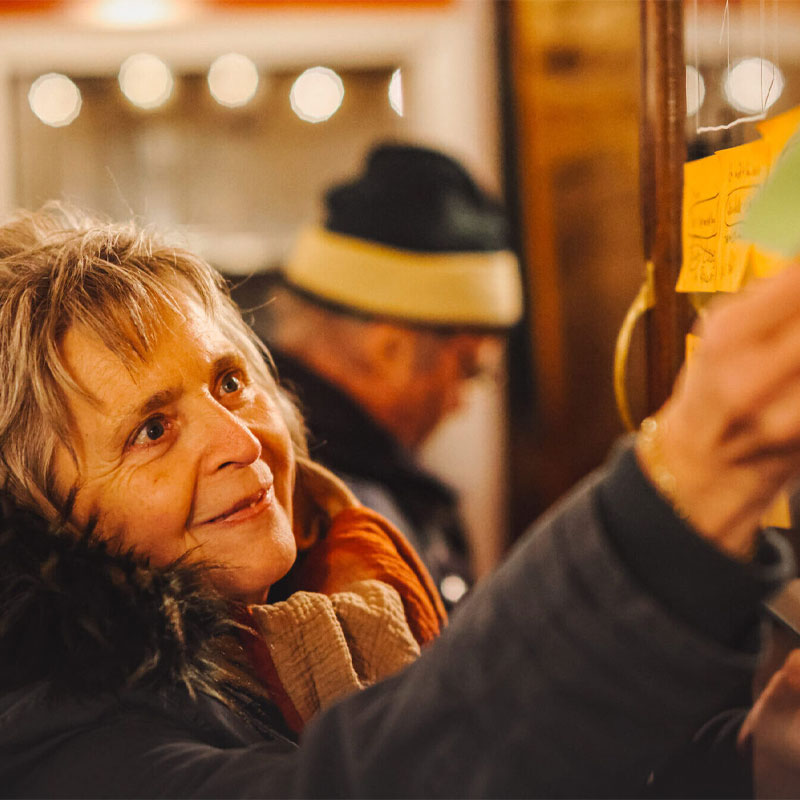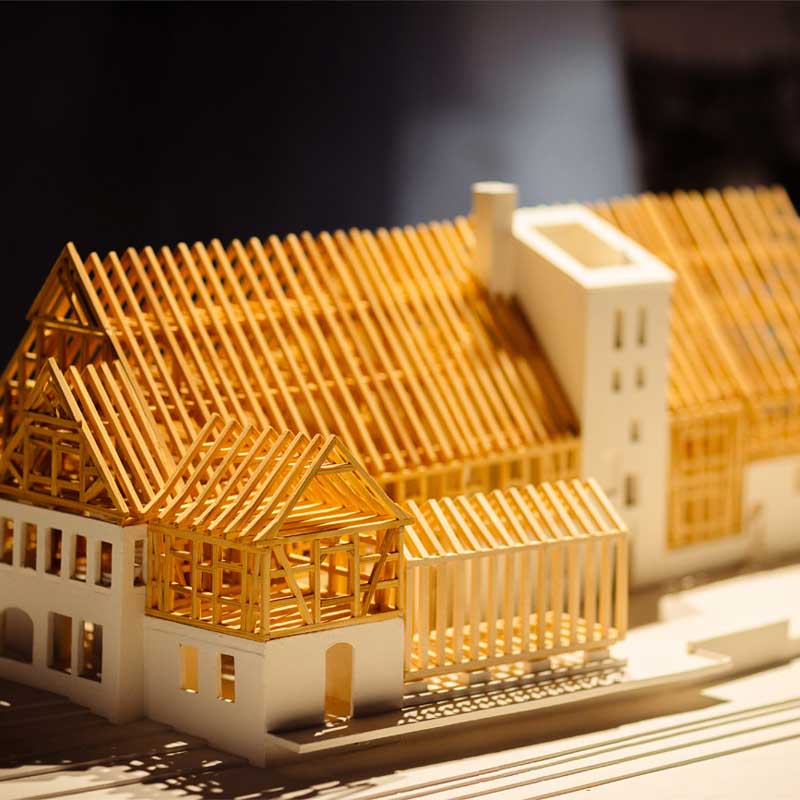Saxony-Anhalt in Brussels: Second edition of the P2P community meeting New European Bauhaus in regions and cities
Brussels was the venue for the second meeting of the P2P-NEB Community on September 29 and 30, 2025. Participants included the Administrative Office for Structural Change in the Central German Mining Area, the NEB_NETZWERKBÜRO for the state initiative #NeueBauhäusler, and the NEB_PROJECT LEHM-BAU-KULTUR of Schwemme e. V. from Halle (Saale). The focus was on how the New European Bauhaus initiative can be integrated even more closely into EU cohesion policy: i.e., the policy that aims to promote European cohesion and ensure the harmonious development of the community as a whole in all regions.
On the first day, the focus was primarily on sharing concrete NEB experiences from different countries and fostering connections between the NEB initiatives. The second day was dedicated to thematic panel discussions. Under the title “Shaping a Better Future: Housing Innovations and the NEB in Just Transition Fund (JTF) Regions”, inspiring examples from Ireland and Romania were presented. It became clear that the NEB approach promotes transformative change at the local level.
Peter Vogt from the Structural Change Task Force in the Central German Revier outlined how the JTF funding and the NEB initiative are being implemented in Saxony-Anhalt. The Saxony-Anhalt NEB_PROJEKT “LEHM-BAU-KULTUR” by Schwemme e. V. from Halle (Saale) was also represented: project manager Johanna Voll spoke on the topic “Citizen Engagement and Communication” from the perspective of a project lead. The invitation was extended during the Schwemme visit by the P2P representatives in June 2025 and was gladly accepted.
Project successes as well as challenges were discussed. For the project itself, however, it was clear from the beginning: “We saw the values and ambitions of the NEB and immediately thought: that's us,” said Johanna Voll.
See also: NEB_NEWS dated June 26, 2025:
European visitors meet local experts: NEB_ONTOUR at the Schwemme!
At the same time, a digital exhibition on the event grounds provided information about the projects and ideas of the NEB PRIZES 2025 finalists. The highlight was the award ceremony for the 22 winners of the NEB PRIZES 2025 and the 20 winners of the NEB support program for small municipalities in the impressive Hemicycle plenary hall of the EU Parliament. This is the fifth time that projects combining sustainability, inclusion, and aesthetics have been honored.
The awards were presented in four categories and two strands:
- NEB Champions for completed projects
- NEB Rising Stars for promising initiatives by young applicants
New additions include the special prize for affordable housing and, for the first time, the NEB Boost for small municipalities, which will support 20 municipalities from eleven countries.
The winners received up to €30,000 and a communications package.
Ruth Reichstein, initiator of the NEB initiative and member of her cabinet, attended the award ceremony as representative of Commission President Ursula von der Leyen. The ceremony highlighted how far the New European Bauhaus has come in the five years since its inception, driven by the conviction of all those involved that a sustainable, beautiful, and collaborative future is possible.
P2P = Peer to Peer stands for “from equal to equal” and describes a network in which the participants (peers) interact with each other on an equal footing. The P2P initiative was launched by the European Union in 2016 and is primarily aimed at those who manage, certify, or audit support programs such as the Just Transition Fund (JTF) in EU countries.





